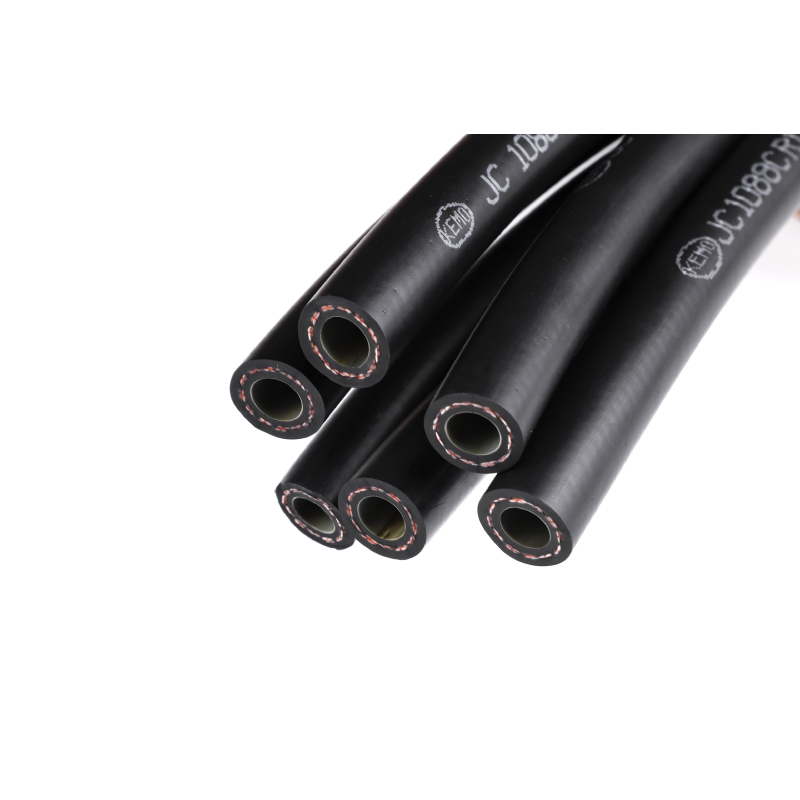Ethanol-Compatible Fuel Hose for Optimal Performance and Durability in Engines
Dec . 05, 2024 15:59 Back to list
Ethanol-Compatible Fuel Hose for Optimal Performance and Durability in Engines
The Importance of Ethanol-Rated Fuel Lines in Modern Automotive Applications
As the automotive industry continuously evolves, the introduction and integration of alternative fuels have become pivotal in promoting sustainability and reducing environmental impacts. Ethanol, a renewable fuel made from plant materials, is gaining prominence as a viable energy source that can be blended with gasoline. However, one aspect that often gets overlooked in this transition is the importance of using ethanol-rated fuel lines. This article delves into the significance of these specialized components, their advantages, and their role in ensuring vehicle performance and safety.
Understanding Ethanol and Its Uses
Ethanol is commonly blended with gasoline to create a more environmentally friendly fuel option. The most prevalent blend is E10, which consists of 10% ethanol and 90% gasoline. Some vehicles can handle higher ethanol concentrations, such as E85, which is composed of 85% ethanol. While these blends help reduce greenhouse gas emissions and dependence on fossil fuels, they also necessitate specific considerations in terms of vehicle design and fuel system components.
What Are Ethanol-Rated Fuel Lines?
Ethanol-rated fuel lines are specially designed tubing or hoses that can withstand the chemical properties of ethanol-based fuels. Traditional rubber fuel lines may not be suitable for use with ethanol due to its corrosive nature and the potential to deteriorate certain materials over time. Ethanol-rated fuel lines are constructed from materials such as fluoropolymer or high-quality synthetic rubber that can resist degradation and maintain integrity under harsh conditions.
Advantages of Ethanol-Rated Fuel Lines
ethanol rated fuel line

1. Durability and Longevity One of the key benefits of using ethanol-rated fuel lines is their enhanced durability. Unlike traditional hoses, which may swell, harden, or crack when exposed to ethanol, these specialized lines are engineered to withstand the fuel’s corrosive properties. This results in a longer lifespan and reduced need for frequent replacements.
2. Safety Safety is paramount in any automotive application. Leaking fuel lines can lead to fire hazards, making it essential to use components that can handle ethanol without compromising structural integrity. Ethanol-rated fuel lines offer peace of mind, minimizing the risk of leaks and spills that could result from using incompatible materials.
3. Performance Optimization Ethanol blends can affect engine performance in various ways. Using the right fuel lines can ensure that the fuel system operates efficiently, allowing for optimal fuel delivery to the engine. This can translate into better engine performance, fuel efficiency, and overall vehicle reliability.
4. Environmental Considerations As society pushes for greener alternatives, using ethanol as a fuel source aligns with efforts to reduce carbon emissions. Ethanol-rated fuel lines contribute to this initiative by seamlessly integrating with the vehicles equipped to run on these fuels, thereby enhancing the eco-friendliness of the overall system.
Conclusion
In conclusion, as the adoption of ethanol-blended fuels becomes increasingly common, the importance of ethanol-rated fuel lines cannot be understated. These components are essential for ensuring vehicle safety, performance, and environmental compatibility. By opting for ethanol-rated fuel lines, vehicle manufacturers and owners can ensure that their cars are equipped to handle the challenges posed by alternative fuels. As we move toward a future where sustainability is at the forefront, investing in the right materials will play a critical role in the success of this transition.
In summary, while the push for alternatives like ethanol is crucial, the systems that support these fuels must also evolve, and that includes fuel line technology. Choosing ethanol-rated fuel lines is a step toward a more efficient and safer automotive future.
